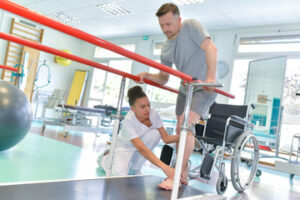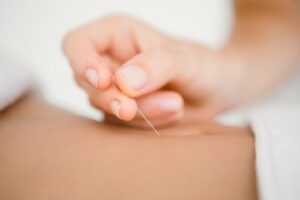Archdale Roofing High Point maintenance starts long before visible signs of damage appear. Regular inspections allow property owners to identify minor issues early. This helps avoid major expenses and prevents disruptions during storms. A consistent maintenance routine ensures peace of mind year-round.

Clogged gutters cause water to back up under shingles. When this happens, the structure absorbs moisture and begins to decay. Debris buildup also attracts pests that burrow beneath roofing materials. Cleaning gutters regularly supports both drainage and roof integrity.
Moss and algae thrive in damp, shaded areas of the roof. These organisms trap moisture and loosen protective layers. Over time, they lead to rot and staining that affects both function and appearance. Removing them early protects the longevity of the surface.
Roof flashing is a critical area often overlooked in maintenance. It seals corners, valleys, and penetrations around vents or chimneys. When flashing fails, water seeps through and causes structural weakening. Periodic resealing prevents costly long-term damage.
Loose or missing fasteners indicate deeper movement in the roofing system. Wind, heat, and age shift nails and screws out of position. This creates gaps where water and insects enter. Refastening strengthens attachment points and reduces wind vulnerability.
Shingle granules washing into gutters is an early warning sign. These granules protect against UV rays and weather erosion. Their loss accelerates roof aging and weakens top-layer protection. Monitoring for granule loss helps schedule timely interventions.
Seals around skylights and vents require attention during every inspection. Their edges degrade faster due to sun and weather exposure. Cracks may appear invisible until water stains emerge inside. Sealing these entry points prevents mold and indoor damage.
Roof valleys manage the highest water concentration on sloped designs. Debris or wear in these areas leads to overflow and erosion. Maintenance must include detailed clearing and close inspection here. Reinforcing valley lines supports consistent water flow.
During seasonal changes, temperature shifts affect roofing materials. Expansion and contraction cause warping, cracking, and sealant failure. Regular checks during climate transitions reduce surprise deterioration. Adjustments based on season extend the system’s lifespan.
Snow buildup may seem harmless but causes long-term strain. When it melts unevenly, water pools and enters through weakened seals. Weight from snow also stresses the internal support system. Proactive snow removal prevents sagging and leakage.
Tree limbs that overhang the roof are more damaging than they appear. They scrape shingles, drop leaves, and allow animals easy access. Falling branches pose a sudden, serious risk during storms. Trimming them back improves safety and light exposure.
Bird nests and animal entry points must be addressed quickly. Creatures living under tiles or in vents compromise insulation and structure. Maintenance involves both humane removal and prevention. Sealing gaps blocks entry and reduces interior contamination.
A neglected roof can become host to invisible mold colonies. Moisture trapped beneath materials provides the ideal growing space. Mold weakens wood, emits odor, and triggers health issues indoors. Early moisture control eliminates conditions that mold requires.
Inspections should also include the underside of the roof deck. Attic space reveals condensation, light penetration, and airflow problems. This view often exposes hidden leaks before they cause visible harm. Thorough maintenance goes beyond the exterior surface.
Storm aftermath inspections are essential even when no leaks appear. Hail and wind cause subtle cracks and lift materials slightly. These flaws grow worse with each passing storm. Fast checks after weather events prevent small damage from becoming major repairs.
Roof coating systems require reapplication based on wear and exposure. These coatings enhance water resistance and temperature control. Once they thin or flake, protection is reduced. Monitoring coating integrity maintains both performance and aesthetics.
Drip edges may loosen over time or rust from moisture contact. These components guide water away from fascia and foundations. Without them, water runs backward and saturates support beams. Tightening or replacing edges is a simple but vital task.
Solar panel integration creates new maintenance points. Brackets and seals around panels must be checked to avoid leaks. Any added weight shifts load distribution on the roof frame. Adjusting for new installations keeps the whole system balanced.
Downspouts must direct water well beyond the building base. If runoff pools near foundations, it weakens the entire structure. Roof maintenance should always include checking ground flow paths. Repositioning extensions preserves structural health.
Ponding water on flat roofs signals drainage failure. Even shallow standing water shortens membrane life. Removing blockages and redirecting slopes help prevent this. Constant pooling invites pests and mold that thrive in damp conditions.
Pressure washing is not always recommended for maintenance. While it removes grime, it can dislodge protective granules or damage weak areas. Soft brushing or chemical treatments work better in many cases. Choosing gentle methods preserves the original finish.
Roof color fading may point to deeper UV degradation. When pigmentation disappears, so do surface protections. Maintenance must address both cosmetic and performance issues. Recoating or replacing worn areas restores energy efficiency.
Crickets and step flashings shift when surrounding materials move. These shifts leave vulnerable entry points for moisture. Maintenance includes repositioning and sealing around chimneys or junctions. A tight perimeter eliminates risk at the roof’s most complex intersections.
Insurance claims often require proof of routine roof maintenance. Without records, coverage can be denied even for storm-related damage. Keeping a log of inspections, cleanings, and repairs protects both structure and budget. Photos and invoices are valuable evidence.
Drainage systems on multi-tiered roofs need synchronized maintenance. Water falling from upper levels overwhelms lower sections if not properly managed. Each tier must be checked for wear, slope, and flow. This coordination avoids overloading and premature wear.
Roof vents help regulate interior temperature and moisture. Blocked or damaged vents increase attic heat and cause insulation failure. Maintenance includes clearing, sealing, and testing air movement. Proper ventilation contributes to overall energy efficiency.
Rust development on metal components should be treated immediately. Rust spreads beneath paint and weakens fastening points. Spot treatments with rust inhibitors extend material life. Neglecting early corrosion invites deeper structural problems.
Insect activity under tiles or near seals is another red flag. Ants, wasps, or termites tunnel into wood and cause decay. Detecting signs like sawdust or droppings helps stop infestations early. Maintenance includes both identification and localized treatment.
Expansion joints in roofing membranes lose flexibility with age. Cracks form along these points and create hidden leak paths. Applying fresh sealant restores elasticity and coverage. This small repair prevents major water intrusion.
Green roofing systems introduce soil-related challenges. Root growth, water retention, and plant selection all affect integrity. Maintenance involves pruning, soil drainage checks, and barrier inspections. A healthy roof garden supports both function and ecology.
Wind uplift tests help evaluate attachment strength in storm-prone areas. Loose materials lift first in high-pressure zones like ridges and corners. Maintenance teams may add fasteners or adjust angles to reduce lift. Reinforcement saves roofs from storm destruction.
Flashing boots around pipes dry out faster than surrounding materials. Their flexible rubber degrades under constant sun exposure. Cracking or shrinking allows water inside. Replacing aging boots avoids widespread moisture damage.
Interior ceiling stains often point to slow, hidden leaks. These stains may grow for months before dripping begins. Maintenance requires tracing the path from roof to ceiling. Fast diagnosis limits interior remodeling needs.
Preventive maintenance contracts with professionals offer long-term benefits. Scheduled visits mean fewer surprises and longer roof lifespan. Clients gain access to expertise and faster emergency service. It’s a relationship that strengthens the roof’s defense.
Seasonal decorations attached to the roof can cause damage. Nails, heavy lights, and brackets penetrate protective surfaces. Once removed, they leave vulnerable holes behind. Using non-invasive methods protects the system during holidays or events.
Thermal imaging helps detect moisture beneath the surface. It reveals heat patterns that indicate trapped water. Maintenance teams use these tools for non-invasive diagnostics. Technology supports deeper, smarter inspection strategies.
Rain diverters and water shields must be aligned correctly. If angled wrong, they create water trails along the siding. Maintenance involves readjusting them to follow gravity and structure. These simple pieces guide gallons of water away from problem areas.
Emergency kits for rooftop repairs keep homes protected between inspections. Sealant patches, tarps, and safety gear prepare homeowners for unexpected issues. Including maintenance materials in emergency plans reduces panic. A small effort can prevent big losses.
Investing in maintenance today avoids expensive re-roofing tomorrow. Minor issues multiply fast under heat, wind, and moisture. Treating your roof like a system rather than a cover changes how you care for it. Routine attention is the best protection a roof can have.
Roofing maintenance should evolve with the structure’s age. What works for a five-year-old roof may not apply at year fifteen. Adapting methods and intervals maintains relevance. Smart maintenance listens to the roof’s condition and responds with care.
Ultimately, roof maintenance is about preserving everything underneath. It shields families, equipment, memories, and comfort. Every check, seal, and sweep contributes to security and longevity. Strong roofs are not just installed—they are maintained with purpose and precision.


